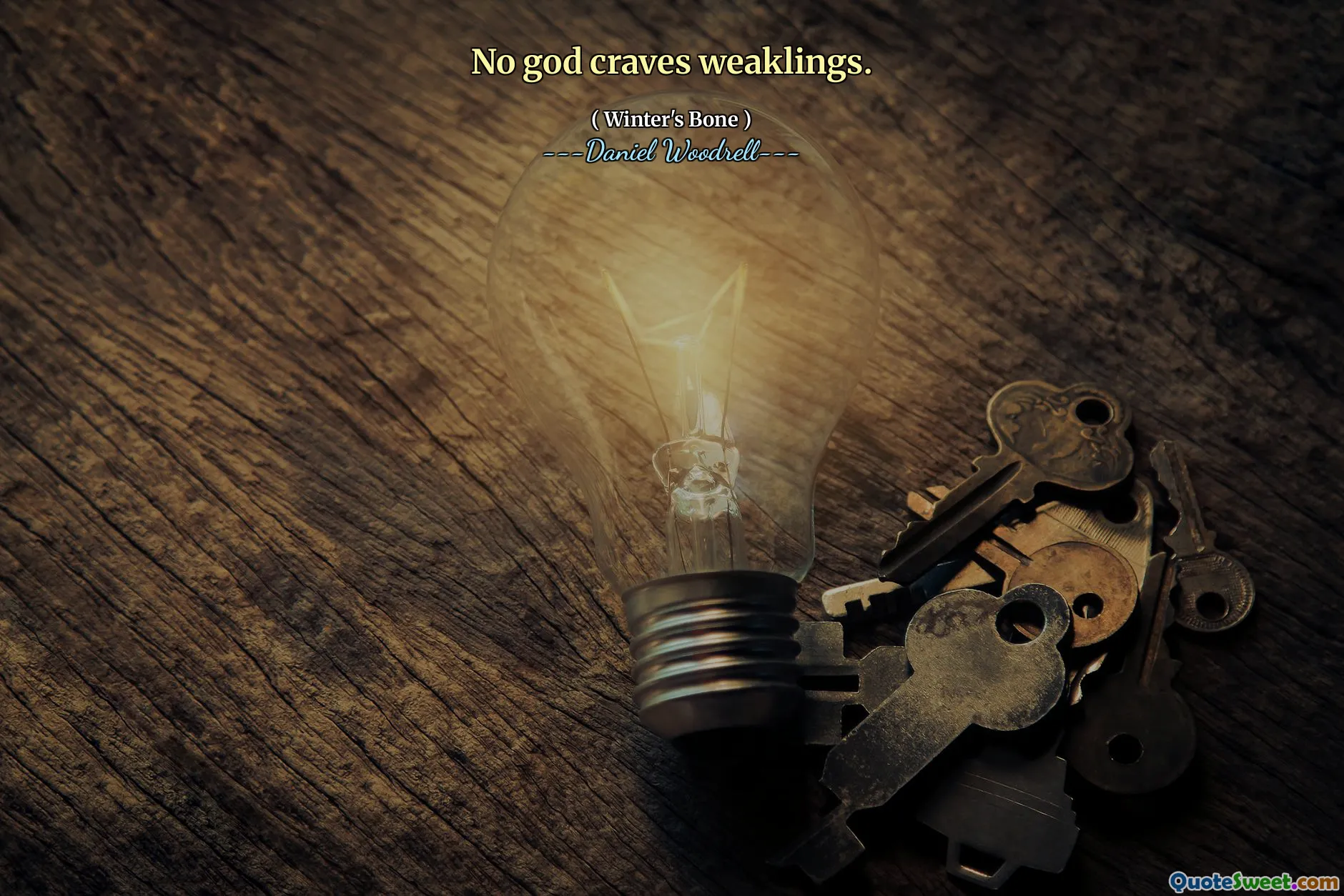
No god craves weaklings.
This quote touches on a profound truth about the nature of strength, resilience, and integrity in both human and divine contexts. It suggests that true power, whether divine or human, is not drawn to or sustains those who are weak or passive. In the broader scope of life, this can be interpreted as a commentary on the importance of resilience, perseverance, and the willingness to face challenges head-on. Weakness often signifies a lack of effort, courage, or internal strength, which many would argue are necessary qualities for growth and achievement.
Throughout history, stories of individuals and groups overcoming adversity are celebrated because they embody this idea—those who rise above difficulties, who refuse to succumb to circumstances, tend to be those who are remembered and revered. The quote implies that the divine, in its sense of purpose or judgment, naturally aligns itself with strength, with those who strive, endure, and display courage instead of yielding to despair. It also invites a reflection about our own lives—whether we are cultivating inner strength to face life's inevitable hardships or choosing the easier route of helplessness.
In the context of the book ‚(Winter's Bone)‘ by Daniel Woodrell, which explores hardship, resilience, and survival in a rugged environment, such a sentiment resonates deeply. It underscores the idea that toughness and tenacity are essential qualities in facing life's brutal realities. The recognition of this truth encourages us to foster resilience, to confront our difficulties with unwavering resolve, knowing that growth often depends on our capacity to withstand adversity. Ultimately, the quote challenges us to consider the qualities we admire and possess—implying that strength is a fundamental virtue in both divine regard and human authenticity.






